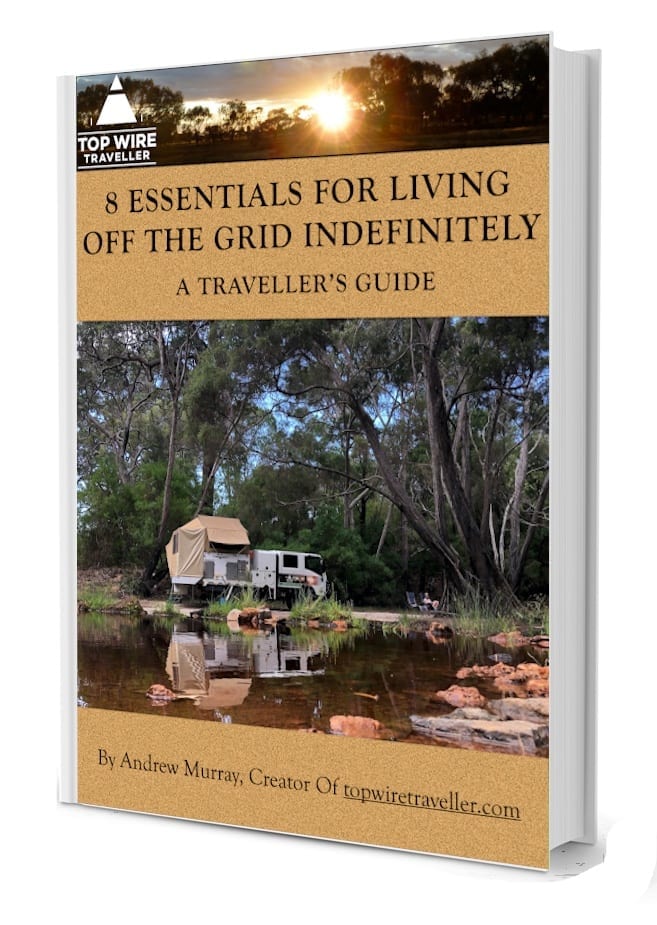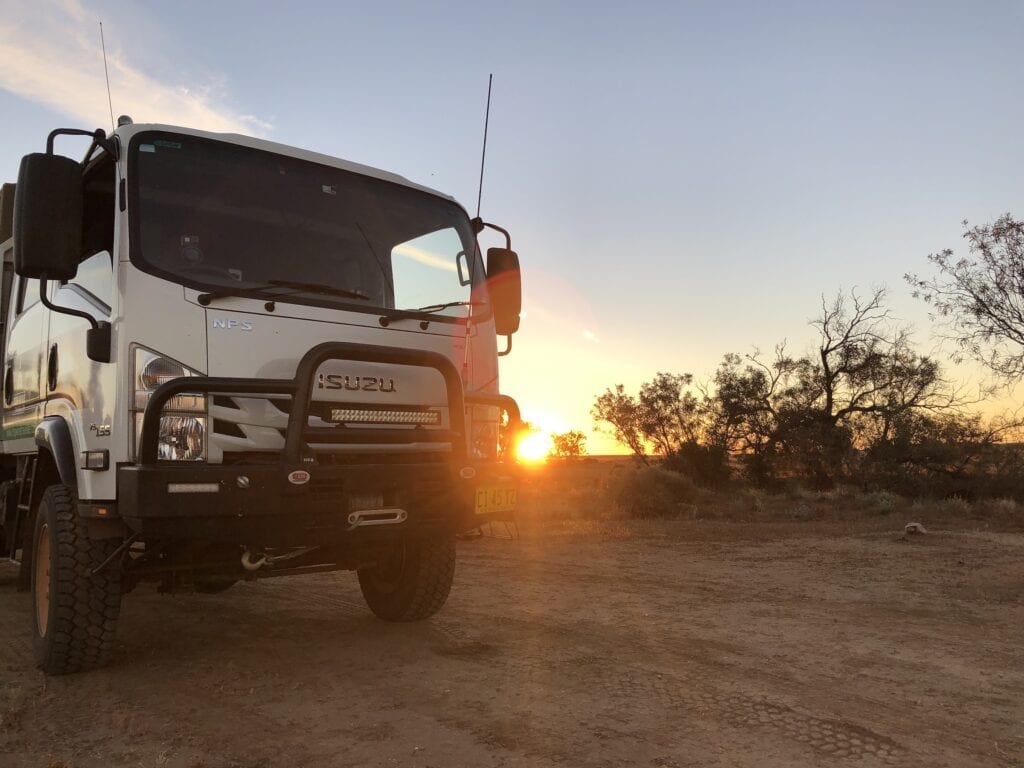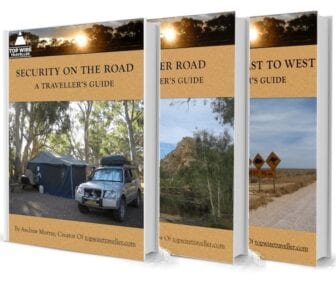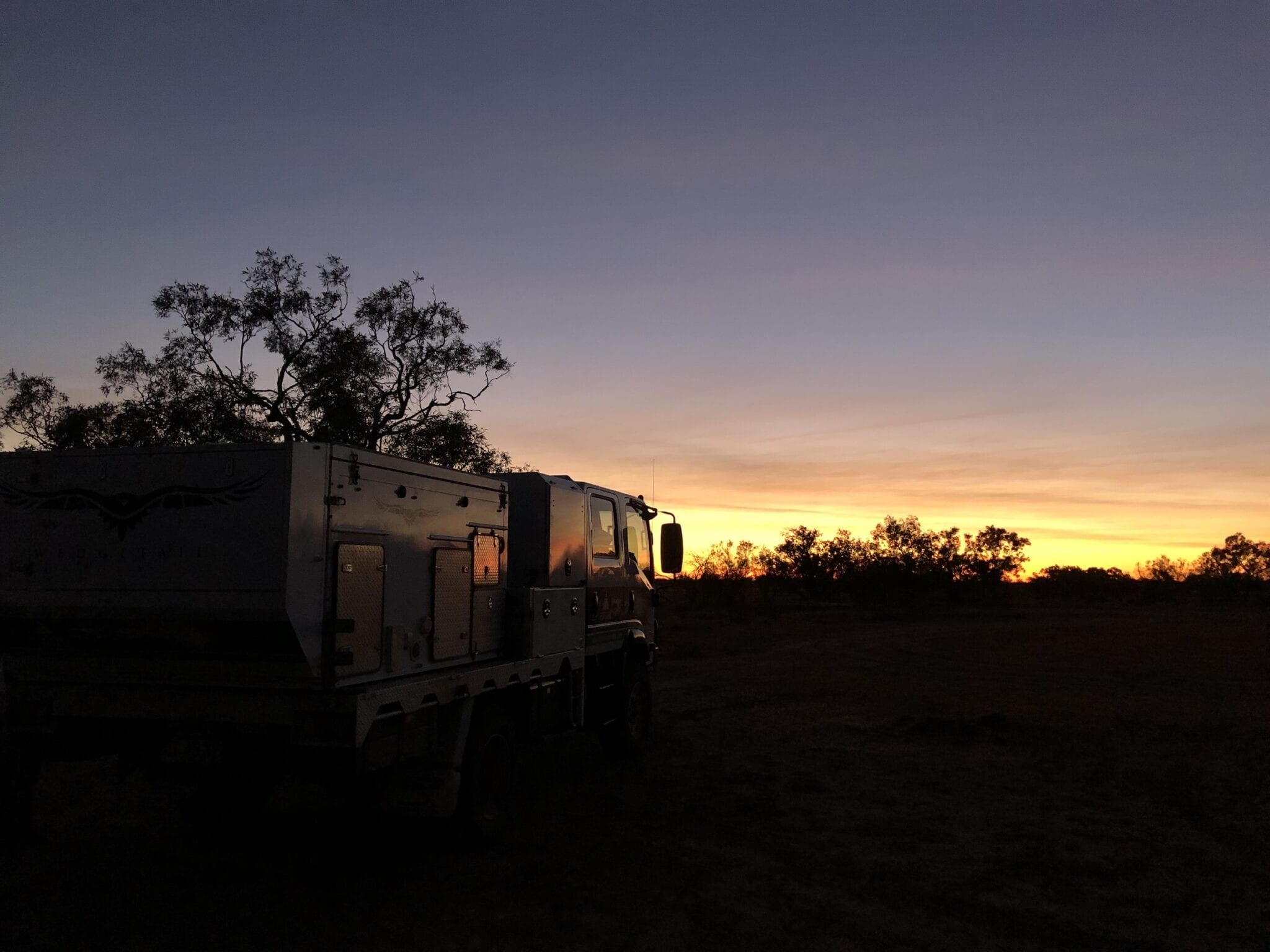Note: This article contains an affiliate link to Snowys. If you click through and make a purchase, we earn a small commission at no extra cost to you.
So you’ve decided a life on the road really is for you, and you’ve managed to live with less and start saving a nest-egg. Well done you! So what’s the next step as you prepare for long-term travel?

You need to think about organising your affairs.
What exactly are we talking about here?
All Those Important (Yet Boring) Things
Yep, that’s right. It’s all those mundane things like mail re-direction, insurances, medications and so on… all those things you need to organise before you leave.
We’ve come up with 10 things you need to get sorted before you walk out the door. Based on our experiences, we’ll run you through those items which are easily forgotten in lead-up to day zero.
And please let me know (in the Comments below) if I’ve missed anything, or there’s something I haven’t covered properly.

Free Download:
The 8 Essentials You Need To Live Off-Grid
…and don’t worry, eating raw fish isn’t one of them!
1. Mail Re-Direction
You have a couple of options here. You can get a mail re-direction order from your local post office. They’ll re-direct it to whatever address you nominate. It’s not cheap, but you really don’t have much choice.
Where do you get it re-directed to? Someone you trust, someone who you’re comfortable with opening all your mail and checking for bills plus any important documents.
And they need to be able to send you a copy. For example, our son lives in our townhouse. He opens our mail, takes a photo of bills or any other important mail and sends us the photo via Facebook Messenger.
So while your trustworthy grandparents might seem an obvious choice for example, consider if they’re up to taking a photo with their phone and sending it to you.
The other choice is a mail forwarding service. This is probably a better (although more expensive) option for the long-term traveller.
All your mail is re-directed to a service provider. They open your mail, scan it then send an email which contains your mail. So it’s really a virtual mailbox. You can be anywhere in the world, but still receive your mail via email.
Here’s a few mail forwarding service providers. We haven’t used any, so can’t comment on which is best. However, a quick online search of “australian mail forwarding service” will bring up a long list of businesses for you to compare.
Cost vary widely. And they’re not cheap. You’ll have to choose the one that best suits your needs.
2. Going Electronic
The most obvious way to minimise your mail forwarding costs is to have all your bills sent via email. Gas, water, rates, insurance, phone, electricity for example. They can all be sent electronically.
If you own shares, get them to send all correspondence by email. It seems like each company sends about one tree worth of paper every week!
Some companies make it really hard to switch to electronic billing. Good ol’ Telstra springs to mind here… surprise, surprise!
3. Email
While we’re on the subject of email, check what happens to your email accounts if you get your home phone disconnected or cancel your broadband service. Some older email addresses are associated with phone numbers and/or broadband services and disappear as well.
To be honest, this is a complicated and confusing minefield. Talk to your provider and see what they say.
There’s a problem with this though.
We’ve found the information varies, depending who you speak to within the telco. What we do now when we have an enquiry (we’re with Telstra, unfortunately) is call at least twice and ask exactly the same question.
If you get two different answers, call again.
Sadly, the telcos are the most incompetent bunch you’ll ever have the misfortune to deal with. Even worse, if the person you’re speaking to doesn’t know the answer, they’ll likely tell you anything just to get rid of you.
There’s no easy answer here.
It depends on who your email is through, how old it is and a whole lot of other mysterious conditions that no-one (especially the telcos) seems to understand.
If in any doubt whatsoever, do not get your phone disconnected. Instead, request it be diverted at the exchange. Again, the telcos will likely tell you this isn’t possible.
They’re wrong, it is possible.
4. Packages
If you’re a keen online shopper, you might have to curb your shopping habits!
You can still receive packages, it’s just more difficult to co-ordinate. Get your package sent directly to a post office in a town you’ll be soon passing through. Then pick it up there.
Just be aware, Australia Post only hold them for 10 days. After that, the package will be returned to sender.
If you do need a package sent to a post office, it’s always a good idea to call them first, to make sure they’re okay to receive and hold the package for you.
Sometimes packages go missing in action.
We had arranged for a package to be delivered to Birdsville. We thought we’d organised this in plenty of time. But the package didn’t arrive at Birdsville Post Office until 3 months after we left!
Fortunately, the good people at Birdsville Post Office still had our contact details. So they were able to forward it on.
For some reason, the senders had specified “by road only”. But Birdsville receives all its mail by air. So it took 3 months to get from Sydney to Birdsville. Maybe it was delivered by camel train…
The lesson here? Be selective about where you get packages forwarded to. Large regional centres are far more likely to receive regular mail services than the more remote places.
5. Medication
If you’re on any medications, have a talk to your GP about how you can continue to receive them. They might be able to give you extra prescriptions or a letter you can show to other doctors while travelling.
Your GP should be able to help you. Long-term travel is a common situation, especially among the grey nomad brigade.
6. Insurance
This can be tricky. Make sure you tell your insurance company if your circumstances change.
Note: I’m certainly not an insurance specialist, not by any stretch of the imagination! Talk to your insurance company, tell them about your plan to travel and ask what information they need.
For example, they’ll most likely want to know if you’re renting out your house, putting furniture into storage, increasing the number of kilometres per year your vehicle travels and so on.
Think about increasing your personal effects insurance too. You’ll likely be carrying laptops, cameras and so on in your vehicle that you might not be covered for.
7. Road Service
Look closely at what your road service covers. You’ll often find the basic cover is pretty much worthless once you’re away from regional centres.
Consider what type of travelling you plan to do. Does your road service cover you if you break down at the top of Cape York? If not, you’ll be thousands of dollars out of pocket.
And if you’re relying solely on the vehicle care package provided by your vehicle’s manufacturer, look even more closely! While they sound great, many don’t cover much at all. You’ve been warned…
We have a premium road service. Yes, it’s expensive. But after a breakdown in the Kimberley a few years ago, we found out just how little the basic services cover.
Thankfully it turned out to be a minor issue. At one stage we were looking at having to pay for our truck to be transported on a tilt tray for a couple of thousand kilometres.
After this, we decided the price of premium cover was dirt cheap in comparison.
8. Vehicle Servicing
Make sure you get a trustworthy mechanic to check over your vehicle (and trailer/caravan) carefully before you leave.
Then find out where you can get your vehicle serviced within Australia. All vehicle manufacturers should have a list on their websites.
The number of service centres depends on the type of vehicle you have.
Broadly speaking, Japanese vehicle manufacturers tend to have the most service centres. If you’re driving something less common, do your homework. For example, you’ll find just about every workshop in the country can service a Toyota or Isuzu. And they’ll most likely carry some spare parts.
But you might need to search a lot harder for a Land-Rover or Jeep mechanic. And if you need spare parts… well, you might need to wait a week or more while the parts are freighted from a capital city.
It’s not a big deal if you’re driving something less common. You just need to plan ahead as you travel.
9. Vehicle Registration
While not strictly something you need to do before leaving home, this is worth mentioning. If rego is due soon after your departure date, then you will need to plan ahead.
Some states allow you to get rego inspections interstate and some don’t. And if you’re driving a vehicle over 5 tonnes GVM (like our truck camper), the rules are often stricter.
For example, our truck has a GVM of 7.5 tonnes and is registered in New South Wales. We have to come back into NSW to get a yearly inspection and the inspection report is only valid for 42 days.
So we need to think well ahead about where we’ll be when rego is due. Keep this in mind. Believe me, it’s easy to be caught out!
Go online and check the regulations for your state and type of vehicle. Otherwise you might be in for a quick dash across the country when rego is due.
10. Satellite Phones And PLBs
If you’re planning for long-term travel, chances are you’ll often find yourself out of mobile phone reception. A satellite phone or PLB (personal locator beacon) really is a must-have device in an emergency.
One tip: Make sure you get it in plenty of time before you leave home.
Satellite phones are easy to set up these days. Just be aware there’s two main satellite service providers, but only one covers the whole country reliably.
PLBs take a bit longer to understand how they work, what messages you need to send and who should receive them. You’ll need to configure the PLB and send test messages before you leave. Just don’t press the SOS button!
We’ll compare satellite phones with PLBs in detail another time.
Summing Up
So now you have a few things to think about before you leave!
While each item is minor in isolation, you’ll be shocked at how long you’ll take to organise them all.
Start planning early and tick them off one at a time. I suggest starting with the telcos… phones, email services and so on. They are notoriously slow and can take several months to complete, even for the most basic changes.

Once you have these all sorted, you’re ready to go… your new life of long-term travel, wandering the backroads of this extraordinary country!
Next time we’ll talk about how you can live cheaply on the road, while still being able to do the things you want to.

Get your Traveller’s Guides
… and a whole lot more at our FREE RESOURCES Page!
Any questions or comments? Go to the Comments below or join us on Pinterest, Facebook or YouTube.
Any errors or omissions are mine alone.
For more tips and ideas on preparing for full-time travel, go here.

